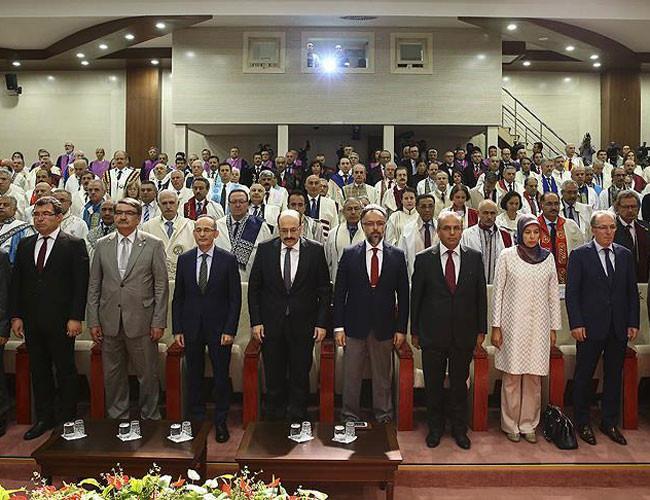
The title of professor, which was once necessary to be eligible for appointment as a rector at Turkish universities, was nulled in the latest emergency decree ruling on July 9.
“The rector at state universities is appointed by the president if they hold the title of professor and are nominated by faculty members. Rectorship terms last four years. Once the term ends, they can be reappointed through the same process. One cannot serve as a rector for more than two terms,” the regulation has said since 2016.
The last decree numbered 703 signed by President Recep Tayyip Erdoğan ahead of his presidential oath-taking ceremony at the Turkish Parliament, lifted the professorship prerequisite and paved the way for a single person’s multiple term authority in universities.
“The president appoints the rector in state and foundation universities. In universities founded by foundations, the rector is appointed after the Board of Visitors makes an offer. The rector represents the legal entity of the university or the higher technology institute,” the new decree read.
The authority to decide education prices, grant faculty members’ activities abroad and the universities’ contribution to education were also given to the presidential office with the latest emergency decree.
Line between politics and education
After the deadly coup attempt of July 15, 2016, emergency decrees have drastically changed the institutional formation of Turkey, especially its educational facilities.
The authority to directly appoint rectors without having to consider the preferences of academics, and to void the election phase, was given to the president after the imposition of a state of emergency decree on Oct. 29, 2016.
In a press announcement on Nov. 1, 350 academics at the renowned Boğaziçi University denounced the changes, recalling that the university chose its rector on July 12, re-electing the popular current rector Gülay Barbarosoğlu, who won 86 percent of the vote on a turnout of 90 percent.
Still, calls from academics were not heeded, as Professor Mehmed Özkan was appointed rector before Barbarosoğlu declared an end to her academic career at the university where she had spent four decades.
The 2016 regulation brought an end to the practice introduced in 1992, which states rector candidates are elected by academics at universities in question before being presented to the president, who can either accept the recommendation or choose another academic as rector.
It was also part of an omnibus bill the ruling Justice and Development Party (AKP) sought to pass after the attempted July 15 coup but was retracted after opposition parties fought against it.
According to the regulation, the president was given the power to choose from three rector candidates determined by Turkey’s Higher Education Board (YÖK) for state universities. However, the president can appoint a rector directly if he does not select one of those presented by YÖK within a month and the body does not present a new candidate, the decree said.
Now, similar to the phase in which academics were elected, YÖK no longer has a role in the appointment of rectors.
Thousands of academics, teachers, and health workers were among those removed through the new decree, while many media outlets, all of which focused on southeast or socialist causes, were shut down.